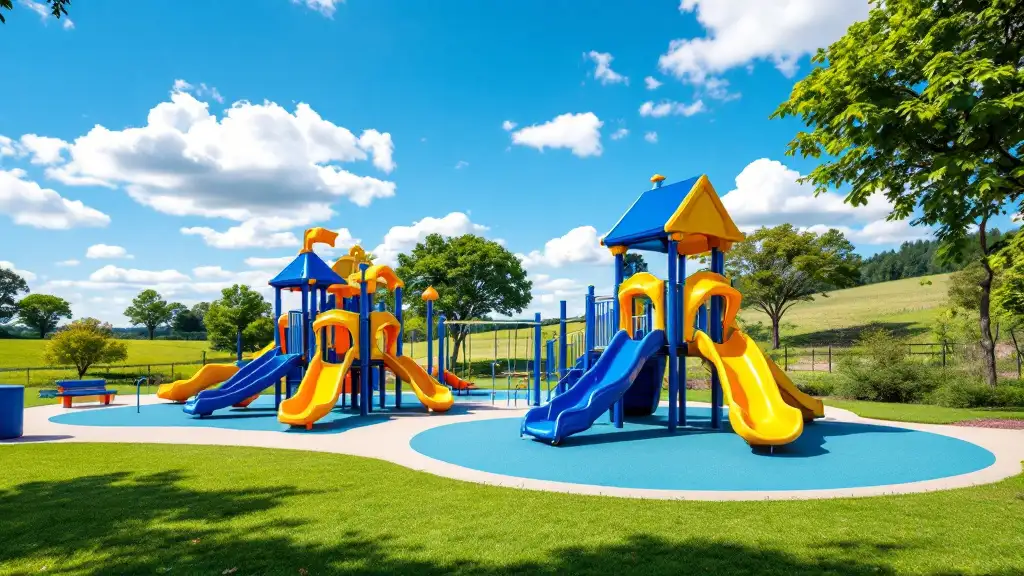
Fostering Autonomy and Community Engagement
The pathway to independent living for adults with developmental disabilities is supported by a comprehensive network of programs, policies, and community resources. These initiatives are designed to cultivate essential life skills, provide tailored support, and ensure access to safe, inclusive housing options. This article explores how the Division of Developmental Disabilities (DDD) and partner organizations empower individuals to lead autonomous, fulfilling lives within their communities.
Personalized Support and Service Planning
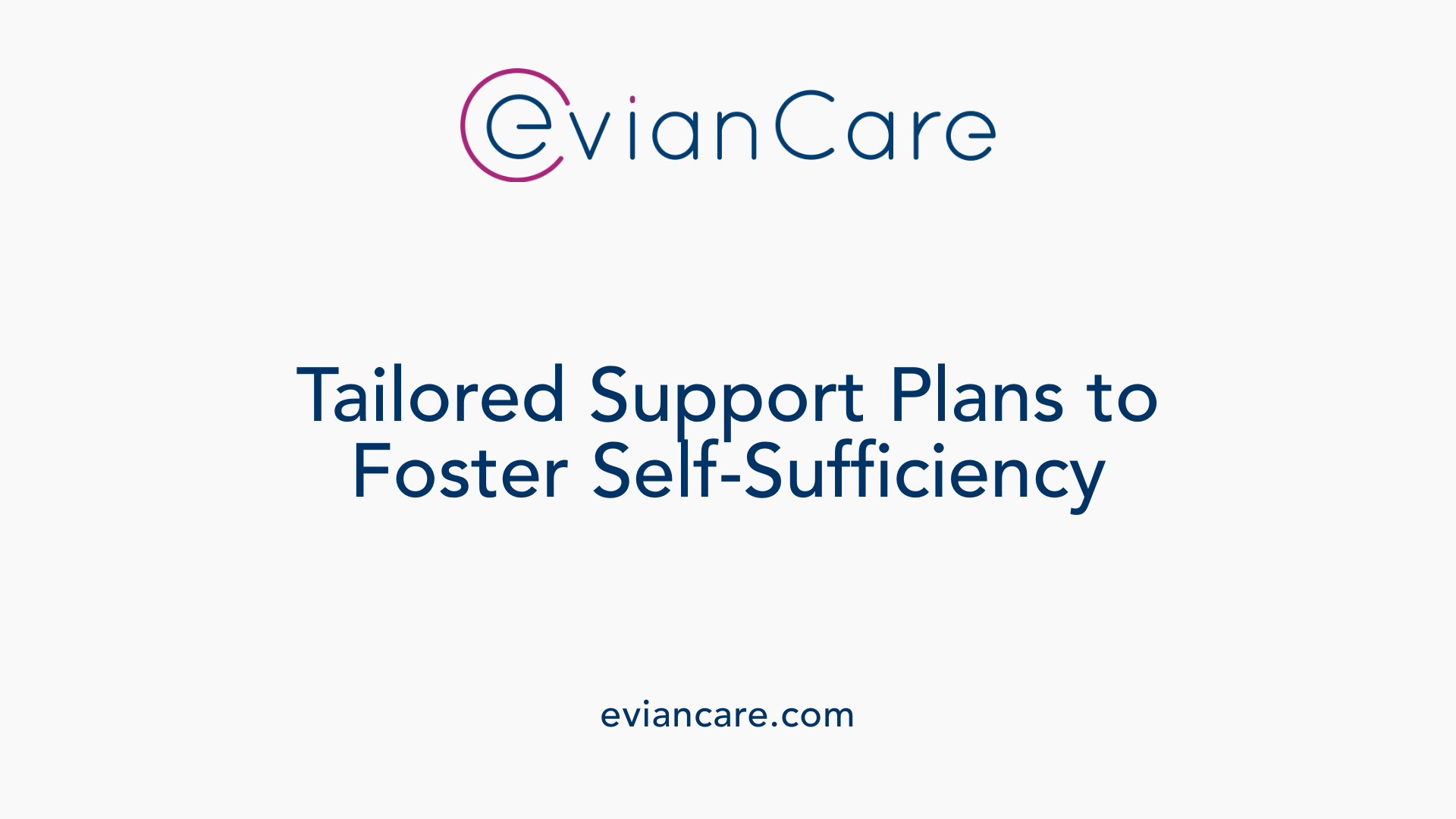 Support services for adults with intellectual and developmental disabilities (IDD) are highly individualized, tailored to meet each person's unique needs, goals, and preferences. This customization helps promote independence, community participation, and overall quality of life. Key to this approach is the development of an individual service plan (ISP), which details the specific supports and services a person will receive.
Support services for adults with intellectual and developmental disabilities (IDD) are highly individualized, tailored to meet each person's unique needs, goals, and preferences. This customization helps promote independence, community participation, and overall quality of life. Key to this approach is the development of an individual service plan (ISP), which details the specific supports and services a person will receive.
Every year, these plans are reviewed and adjusted to ensure they remain relevant and effective as individuals' needs and circumstances evolve. This process involves active participation from the individual, their family, and service providers, emphasizing a person-centered approach that respects personal choices and aspirations.
Residents in community-based settings such as group homes, intermediate care facilities, or supported living arrangements all benefit from these personalized plans. Services may include life skills training, employment support, transportation, behavioral assistance, and health management. For example, programs like the Texas Home Living Program (TxHmL) or the Home and Community-based Services Program offer customized supports that facilitate independent living, whether in a private apartment or shared housing.
Residents' rights and safety are protected through regulations and resources such as informational brochures provided by agencies. These materials outline protections against abuse and neglect and affirm residents’ rights to autonomy, dignity, and community involvement.
Additionally, advocates and organizations like the Community for Permanent Supported Housing (CPSH) and organizations such as Noah’s House emphasize the importance of individualized services that foster independence and social integration. They also promote the development of essential life skills, including communication, safety, problem-solving, transportation management, and personal hygiene.
Practical strategies used in personalized planning include setting clear goals, breaking down complex tasks into manageable steps, and employing assistive technology to support independence. These tailored supports can significantly enhance confidence, self-advocacy, and the ability to live self-sufficiently.
This individualized approach is further reinforced by policy and program initiatives like the Medicaid Home and Community-based Services (HCBS) waiver, which funds personalized supports, and state and national efforts to promote community integration and equal opportunity. Support coordination roles are vital, as they help individuals access services, resolve issues, and continually update supports to reflect changing needs.
In summary, personalized support and service planning empower adults with IDD to achieve greater independence and participate fully in their communities, guided by their own preferences and supported through a coordinated network of services.
Housing Options and Community Integration
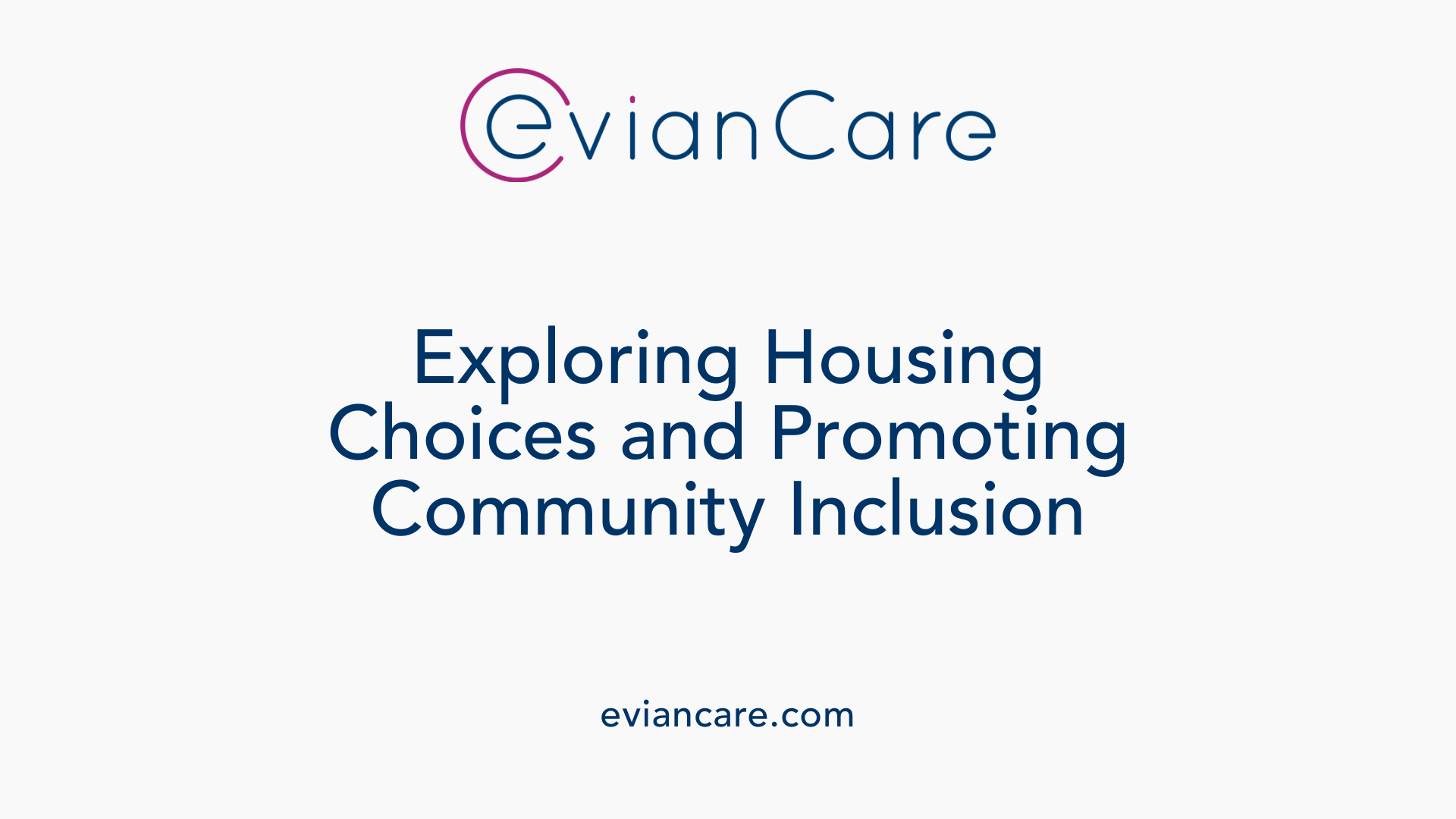
What are different housing arrangements available for adults with IDD?
Adults with intellectual and developmental disabilities (IDD) can choose from a variety of housing options tailored to their needs and preferences. These options include group homes, supported living, intermediate care facilities, state supported living centers, and supported housing programs.
Group homes provide a structured environment where residents share a residence and receive professional support. These homes focus on fostering independence while ensuring safety and health management. Residents benefit from social interaction, community involvement, and ongoing supervision.
Supported living services enable individuals to reside in their own homes or shared apartments with minimal assistance. Support professionals assist with daily activities like personal care, household chores, and navigating community resources. This model emphasizes person-centered planning, allowing residents to have control over their living environment.
Supported housing programs, such as the community-based initiatives funded through Medicaid waivers, offer personalized services including help with housing stability, skill development, and community integration. These programs aim to promote autonomy while providing safety nets tailored to individual needs.
Other options include intermediate care facilities and state supported living centers, which typically offer around-the-clock care, managing health and safety needs for residents who require more intensive support.
Each housing choice is designed to respect the preferences and independence levels of adults with IDD, promoting safe, affordable, and accessible living environments.
How do policies and legislation support community living?
Legislation, notably the Developmental Disabilities Act (DD Act), has transformed the vision for living with a developmental disability. It emphasizes the right of individuals to live independently and participate fully in their communities. Policies foster this by establishing comprehensive support frameworks that facilitate access to affordable, accessible, and community-integrated housing.
Universal design principles are increasingly integrated into housing development, ensuring physical accessibility. Participatory planning processes involve individuals with disabilities, their families, and advocates in developing housing solutions that align with personal preferences.
Funding programs like the Community Pathways Waiver, Corridor of Freedom (CFC) Program, and the Living in the Community Support (LISS) support individuals through subsidies, assistive technology, and in-home services.
Organizations such as Centers for Independent Living advocate for these policies by providing training, peer support, and resources to empower individuals. They work to ensure that policies prioritize person-centered approaches, enabling choice and self-determination.
Overall, these legislative measures create an integrated system that promotes accessibility, community inclusion, and individual autonomy, vital for fostering independent living among adults with IDD.
How do funding mechanisms like Medicaid waiver programs support independent living?
Medicaid waiver programs are crucial in supporting adults with IDD to live independently by funding personalized, community-based services. These programs allow individuals to receive supports like personal care, home modifications, assistive technology, employment assistance, and medical services—all tailored to their unique needs.
By providing these supports, Medicaid waivers reduce the necessity for institutional care and promote autonomy. They enable adults to remain in their homes or community settings, fostering a sense of independence and belonging.
Funding through waivers also benefits families by alleviating caregiving burdens and providing access to resources that enhance safety and quality of life. For example, services like transportation, behavioral supports, and supported employment help individuals participate fully in community life.
Overall, Medicaid waiver programs expand access to essential supports, increase choice, and help individuals with IDD achieve their goals of living independently.
How do community supports and programs enhance independence?
Community supports, such as adult training centers and social engagement opportunities, play a vital role in fostering independence for adults with IDD. These programs provide life skills training in areas like food preparation, safety, cleaning, and personal hygiene, building confidence and self-sufficiency.
Innovative programs, like The Susan Moenter Center for Independence, combine real-life apartment settings with classroom learning, helping individuals practice daily skills in realistic environments. These supports often include job coaching, transportation training, and social activities, encouraging community participation.
Workshops, peer support networks, and educational outreach—like those provided by Community for Permanent Supported Housing (CPSH)—empower individuals to develop autonomy, advocate for themselves, and engage meaningfully with their communities.
Some organizations tailor programs to support long-term independence, with support plans that adapt over time to changing needs. For instance, Udi’s goal to expand services from 100 to 150 clients reflects ongoing efforts to increase access.
What are the rights and protections for residents in housing environments?
Residents in housing arrangements for individuals with IDD are protected by legal rights to ensure safety, dignity, and autonomy. Brochures and informational resources provided by agencies clearly outline these rights, which include the right to respectful treatment, privacy, and participation in decision-making.
Support systems like Support Coordination or case management help individuals understand and exercise their rights. They also ensure that services are delivered in a manner aligned with personal preferences and legal standards.
Regulatory agencies, such as the Texas Health and Human Services Commission or state departments in other jurisdictions, monitor facilities and support programs to maintain quality and safety standards.
Protection and Advocacy systems investigate reports of abuse or neglect and advocate for legal rights. They work to eliminate barriers and promote accessible, inclusive environments.
In shared living and group home settings, family involvement and staff training emphasize person-centered care. Physical accommodations, such as accessible features and safety equipment, help safeguard residents.
Thus, a combination of legal protections, regulatory oversight, and advocacy ensures that everyone living in or utilizing these services can do so with respect, safety, and dignity.
Developing Life Skills for Independence
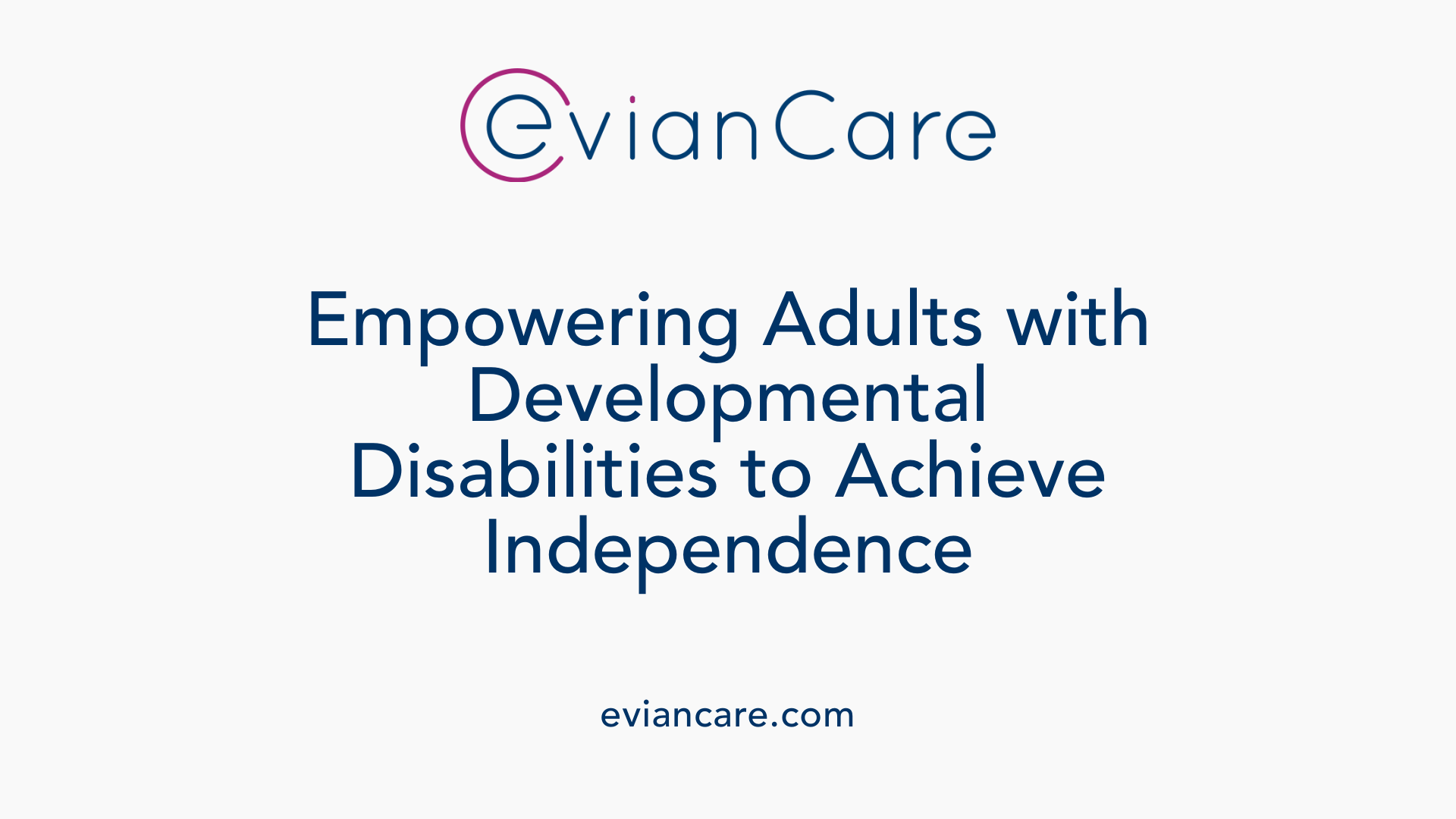
What is involved in developing life skills for adults with developmental disabilities?
Building independence for adults with developmental disabilities requires a comprehensive and personalized approach. This process often begins with early transition planning from adolescence, focusing on key areas such as employment, community participation, and daily living skills.
Direct instruction plays a central role, covering essentials like personal hygiene, cooking, shopping, laundry, health management, and safety awareness. Tailored teaching strategies, such as sequential learning for individuals with visual impairments, are employed to ensure effective skill development.
Organizations and curricula like Project LIFE and GCFLearnFree.org provide valuable resources and interactive lessons to teach skills across essential domains, including money handling, health, housing, and social interaction.
Support from community organizations, workforce development programs like Workforce WV, and rehabilitation services helps assess individual progress and adapt training plans.
Overall, developing life skills involves structured teaching moments, ongoing assessment, individual support, and community engagement, all aimed at fostering independence and equipping adults with the tools needed for successful adult living.
Community Support and Advocacy
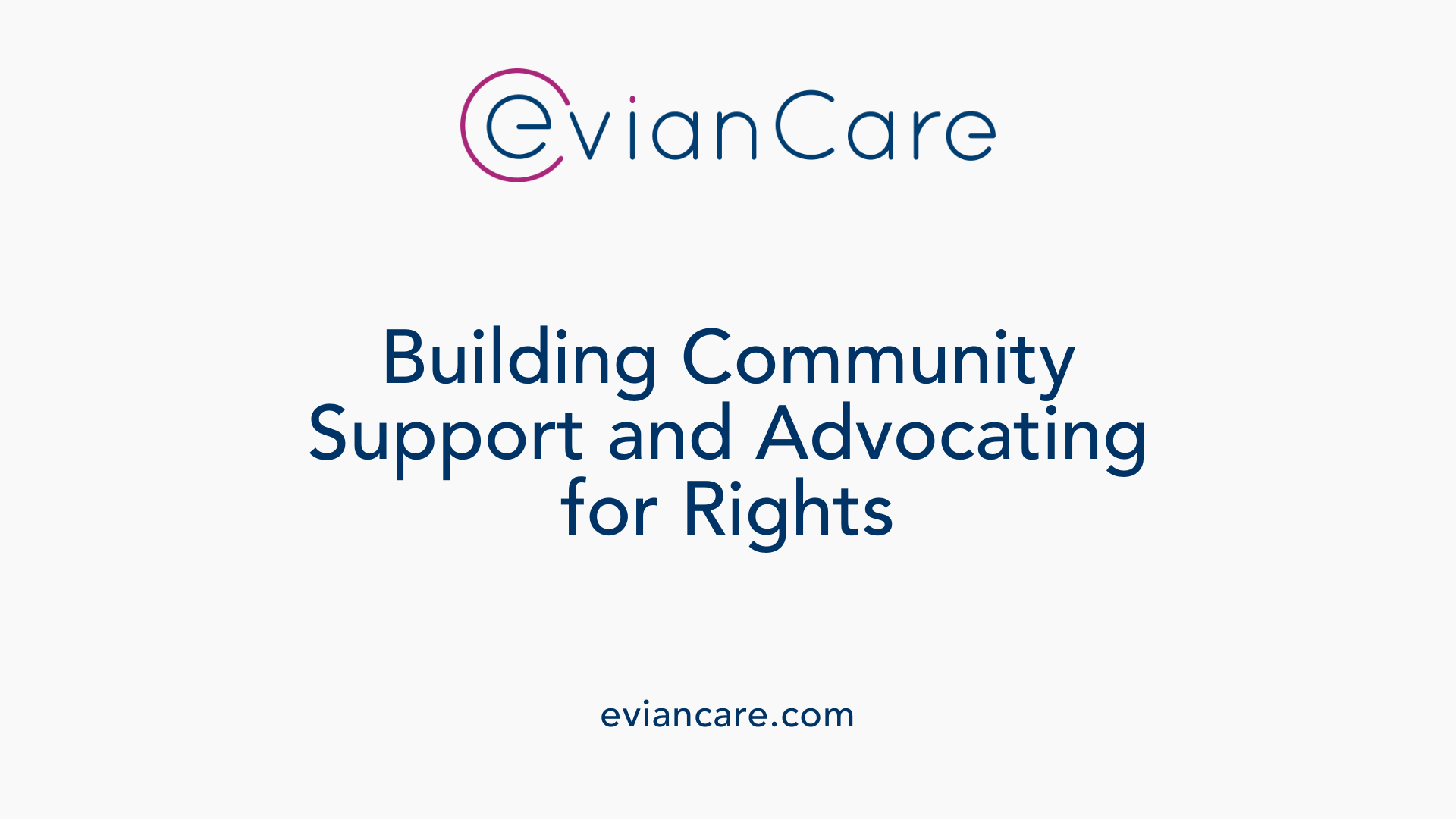 'Community involvement and integration efforts are vital in supporting adults with developmental disabilities to live independently and participate fully in society. These efforts include facilitating access to local events, employment opportunities, and social activities that promote social skills, build connections, and foster a sense of belonging within neighborhoods. Programs that focus on community-based services, such as adaptive housing, transportation, and employment support, enable individuals to navigate daily life with greater independence.
'Community involvement and integration efforts are vital in supporting adults with developmental disabilities to live independently and participate fully in society. These efforts include facilitating access to local events, employment opportunities, and social activities that promote social skills, build connections, and foster a sense of belonging within neighborhoods. Programs that focus on community-based services, such as adaptive housing, transportation, and employment support, enable individuals to navigate daily life with greater independence.
Legal protections like the Americans with Disabilities Act (ADA) and the Supreme Court’s Olmstead decision emphasize the right of individuals to live and participate in community settings rather than institutional environments. These laws help ensure accessible housing, public spaces, and services, reducing barriers caused by societal attitudes or physical environment challenges.
Organizations dedicated to advocacy and service provision, such as The Arc, community resource centers, and local support groups, play a crucial role. They implement programs like public awareness campaigns, educational workshops, and peer mentoring that empower individuals to advocate for themselves and access necessary resources.
Supportive services include home modifications to enhance accessibility, transportation options to reach workplaces and recreational venues, and skill development initiatives tailored to individual needs. These resources help adults with disabilities enjoy meaningful employment, socialization, and recreational activities.
Addressing barriers such as societal stigma and funding shortages remains a challenge. Advocacy organizations work to influence policy changes, secure funding, and promote inclusive community planning. They aim to cultivate environments that celebrate diversity and promote the full inclusion of people with disabilities.
Overall, these efforts significantly improve quality of life, foster individual autonomy, and contribute to their communities' diversity and vitality. Through legislative protections, community programs, and ongoing advocacy, society continues to progress toward fully inclusive living environments.
Can people with intellectual disabilities live independently?
Many people with intellectual disabilities can live independently, especially when provided with appropriate training, support, and resources tailored to their skills and interests. Developing essential life skills such as personal hygiene, safety awareness, money management, and decision-making is critical for fostering daily independence.
Support systems like families, community organizations (e.g., Opportunity Village), and support services play a vital role in facilitating this independence. For instance, organizations offer life skills training, job coaching, and social opportunities that promote self-reliance. With proper interventions, many individuals with intellectual disabilities are capable of managing their own homes, engaging in employment, and participating actively in community life.
However, barriers such as insufficient training programs, limited access to adaptive technology, or environmental challenges can impede progress. Overcoming these obstacles involves comprehensive planning, policy support, and provision of auxiliary aids and services.
In summary, with the right combination of education, tailored support, and supportive infrastructure, a significant number of individuals with intellectual disabilities are able to achieve meaningful independence and improve their quality of life.'
Fostering a Future of Independence
Empowering adults with developmental disabilities to live independently is a multidimensional effort involving legislation, tailored services, community support, and skill development. The Division of Developmental Disabilities and its partners provide a robust framework of programs and resources that promote self-sufficiency, community participation, and housing options suited to individual needs. Through ongoing advocacy, technological innovations, and person-centered approaches, adults with developmental disabilities are increasingly able to realize their right to lead autonomous, engaged lives. Continued investment and policy support are crucial to expanding these opportunities and ensuring that independence is accessible for all.
References
- Intellectual or Developmental Disabilities (IDD) - Long-term Care
- The Independent Life: Support for Adults with Intellectual ...
- Empowering Adults with Developmental Disabilities to Live ...
- Independent Life Skills for Adults with Developmental ...
- DDD Helps Member Find Living Space--and Breathing Room
- Why the Developmental Disabilities Act Matters
- Division of Developmental Disabilities
- 7 Key Benefits of Group Homes for Adults With ...
- Noah's House | A community for adults with intellectual and ...





